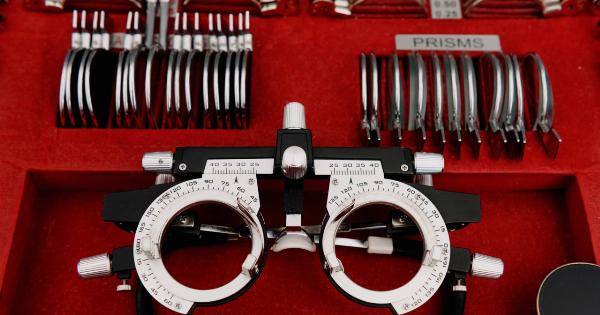The emergence of the new OMICRON variant of the COVID-19 virus has raised concerns worldwide.
With reports suggesting that it may be more transmissible and potentially more resistant to current vaccines, there is an urgent need for effective testing methods to identify and track this variant. In response to this challenge, scientists have developed a revolutionary 30-minute test that can detect the OMICRON strain with high accuracy.
The OMICRON variant: A cause for concern
First identified in South Africa in November 2021, the OMICRON variant has quickly spread to several countries, leading to heightened fears about its potential impact.
Preliminary studies indicate that the variant carries a large number of mutations, particularly in the spike protein, which is the target of most COVID-19 vaccines. This has raised concerns about the effectiveness of existing vaccines against the OMICRON strain.
Additionally, the rapid spread of the variant has prompted concerns about its transmissibility. Early data suggests that OMICRON may be more easily transmitted than previous variants, leading to increased rates of infection in affected regions.
These concerns have highlighted the urgent need for efficient and accurate testing methods to detect the presence of OMICRON and contain its spread.
The need for rapid testing
With the Delta variant already causing disruptions worldwide, the emergence of the OMICRON variant has further underscored the importance of early detection and containment.
Rapid testing plays a crucial role in identifying and isolating infected individuals, preventing further transmission of the virus.
Conventional PCR tests, while highly accurate, require several hours or even days to yield results. This delay can hinder effective contact tracing and timely implementation of containment measures.
The development of a rapid testing method specifically designed to detect OMICRON can significantly improve our ability to control the spread of this variant.
The breakthrough: A 30-minute test for OMICRON
Scientists at leading research institutions and diagnostic companies have joined forces to develop a revolutionary 30-minute test for detecting the OMICRON variant.
This test builds upon the existing PCR technology but incorporates specific genetic markers that are unique to the OMICRON strain.
The test works by extracting genetic material from a patient’s nasal or throat swab and amplifying it using a process called reverse transcription polymerase chain reaction (RT-PCR).
However, unlike traditional PCR tests, this new test targets specific genetic sequences that are characteristic of the OMICRON variant. By identifying these unique markers, the test can accurately determine whether a patient is infected with OMICRON or another strain of the virus.
Unparalleled speed and accuracy
One of the key advantages of the new 30-minute test is its speed. While traditional PCR tests can take several hours to produce results, this rapid test can deliver accurate outcomes within just 30 minutes.
This significant reduction in turnaround time enables quicker identification of infected individuals and allows for prompt implementation of necessary public health measures.
Despite its speed, the test does not compromise on accuracy. Extensive validation studies have shown that the new test has a high sensitivity and specificity for detecting the OMICRON variant.
In other words, it rarely produces false negatives or false positives, ensuring reliable results that can guide effective public health responses.
Accessible and scalable
Another crucial aspect of the new test is its accessibility and scalability. The tests are designed to be user-friendly, allowing healthcare professionals to administer them in various settings, including hospitals, clinics, and testing centers.
The simplicity and rapidity of the procedure make it feasible to conduct mass testing campaigns, particularly in regions where the OMICRON variant is prevalent or suspected to be spreading.
Furthermore, the test can be easily integrated into existing diagnostic pipelines, leveraging established infrastructure and resources.
This ease of implementation facilitates the widespread adoption of the test and minimizes the time and costs associated with deploying a new testing method.
Implications for containment and vaccination strategies
The availability of a rapid and accurate test for the OMICRON variant has significant implications for containment and vaccination strategies.
Early detection of OMICRON cases allows for immediate isolation and contact tracing, effectively breaking the chains of transmission. Moreover, this test can assist in monitoring the spread of OMICRON and identifying potential hotspots, enabling targeted and proactive measures to limit its impact.
From a vaccination standpoint, the test can provide valuable information about the effectiveness of current vaccines against the OMICRON variant.
By identifying individuals who have been fully vaccinated but still test positive for OMICRON, health authorities can gain insights into the potential need for booster shots or the development of variant-specific vaccines.
The road ahead
As the battle against COVID-19 continues, the development of a 30-minute test for the OMICRON strain represents a significant breakthrough in our fight against the pandemic.
The availability of a rapid, accurate, and scalable testing method can revolutionize our ability to control the spread of this variant and inform evidence-based public health responses.
While the OMICRON variant raises concerns, it is important to remember that the scientific community is diligently working to develop and adapt testing strategies to address emerging challenges.
By staying informed, following public health guidelines, and supporting ongoing research efforts, we can collectively navigate through this evolving landscape and ultimately overcome this global health crisis.





























